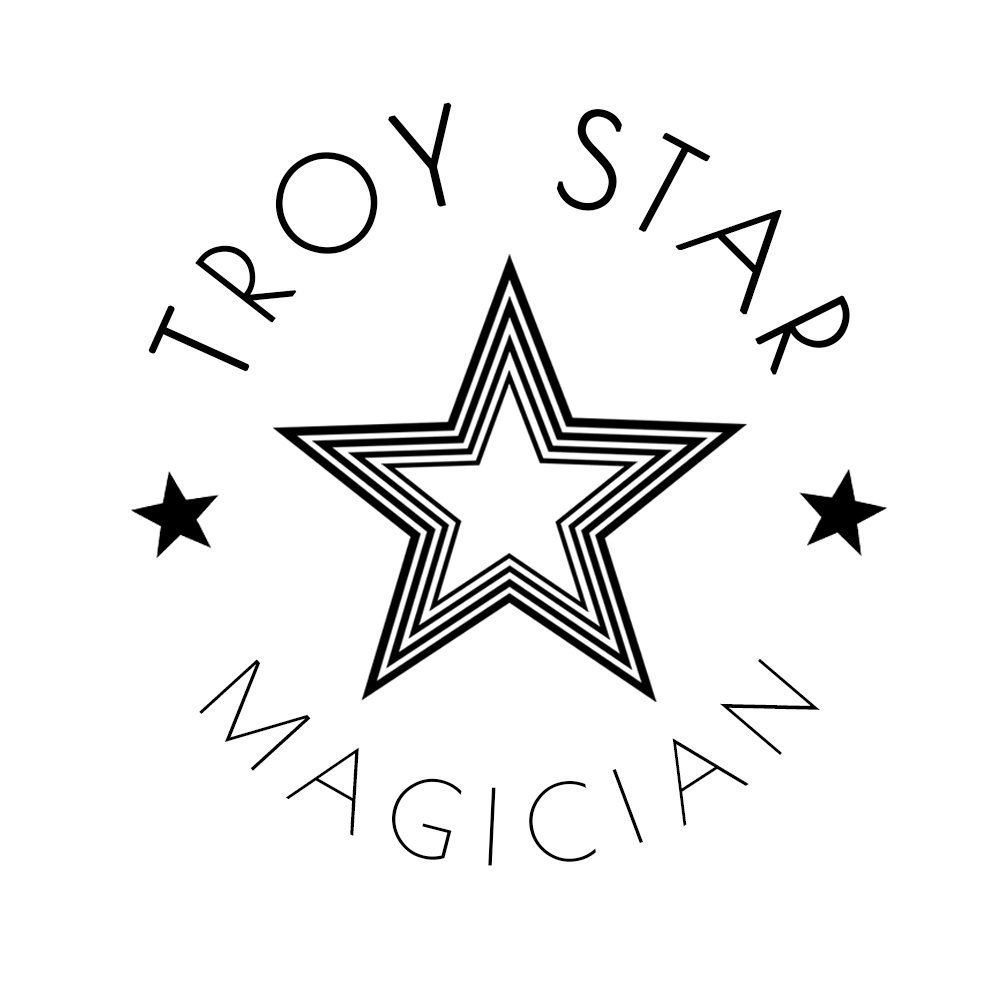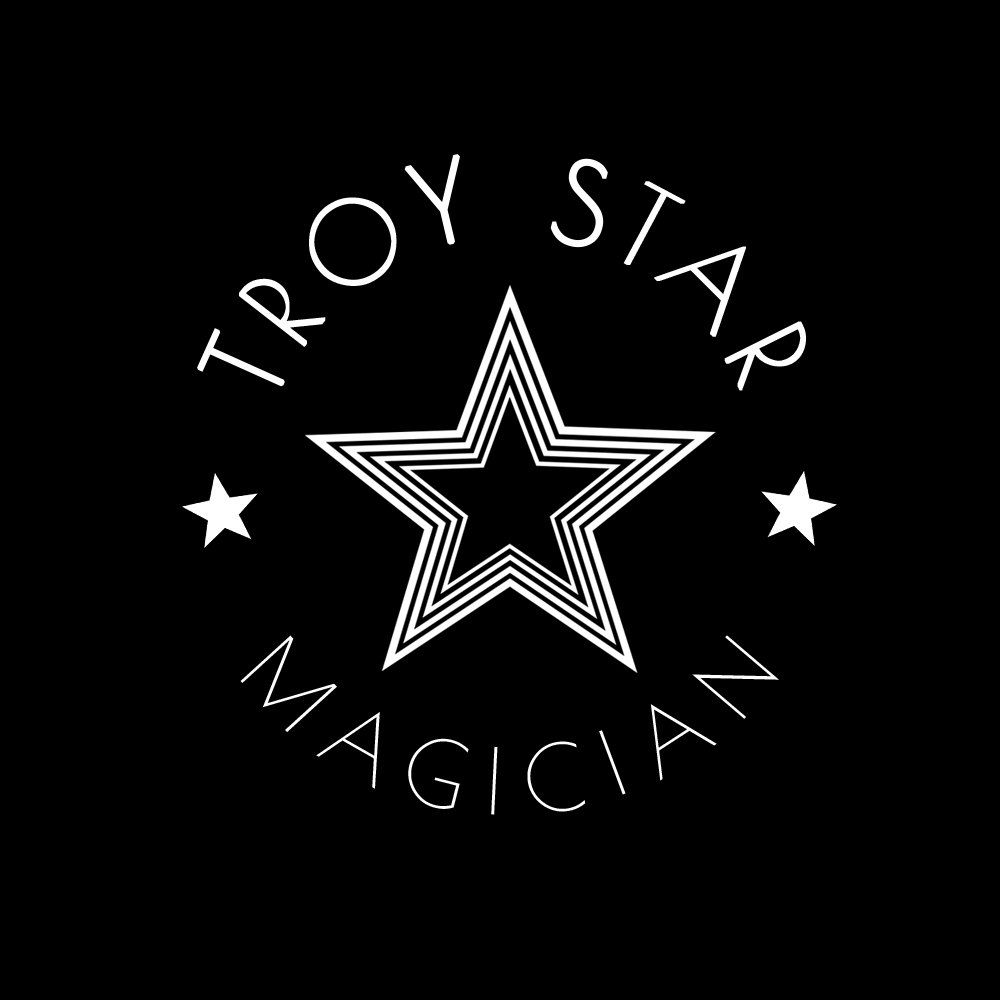Tips to help you book the right magician
and stage a successful event.
Tips on Selecting a Magician
Like most entertainers, magicians tend to have specialties. They specialise in the types of events they perform at, the repertoire of tricks they perform, and the audiences they perform for. If you answer three simple questions before you begin your search for a magician to entertain at your event, you can save yourself a great deal of time and effort.
1. What type of event am I hosting? Whether or not you have access to (and the budget for) full production facilities and crew at your event venue might drive the decision on which magician you hire. Some magicians perform elaborate illusions that require a stage, lighting, music, and truck load of props. Sleight-of-hand magicians can perform anywhere without production facilities and with props that fit in their pockets such as borrowed money or pens.
2. What types of tricks do I want a magician to perform at my event? Consider the venue and the size of the gathering. If you hire a stage performer, you will have little flexibility because the act will already be well choreographed. For a sleight-of-hand illusionist, you have more flexibility. You can choose a centralised performance, where the magician performs for the entire audience at once (ideal for moderate gatherings of up to 60 people). Or you can choose a walk-around magic performance, in which the magician roams the venue entertaining small groups (ideal for any size gathering). Whichever type of magician and performance you choose, the audience reaction should be "That's impossible! How did he do that?"
3. Who is the audience? This is an important consideration. Some magicians, like comics, gear performances for adult audiences. Others specialise in children's performances. Some specialise in corporate events and meetings; others perform only at house parties. Matching the magician to the event and its audience will help ensure the entertainment is a success for you, your audience, and the performer.
Eleven Tips to make Your Event a Success
If you have ever attended an event where everyone seemed to be having a great time, whether private, public, or corporate, you no doubt wondered what the secret to its success was. It's not always simply the mix of guests or the food or the entertainment that makes a winning event, but the right combination of many elements. Here is a creative list of tips to help you make your next event one people will remember for all the right reasons.
1. Start with a checklist. List all the elements of your event: food, bar, entertainment, venue, invitations, guest list, etc. Use the checklist as you plan your party. Add details as you go along and check tasks off as they are completed.
2. Plan in advance. Send invitations or advertise the event far in advance. The larger the event, the more time you should allow. Allow a minimum of two weeks for a small private party and three months or longer for a significant event to which people will have to travel. Give your guests plenty of time to plan and set aside the time to attend.
3. Guests should know the purpose of theme of the event. The place to make this clear is on the event's invitation, poster, or flyer. This will not only help guests know how to dress for the event, but will generally prepare them for what sort of event they will be attending.
4. Choose an appropriate venue. Is there adequate space for guests to mingle, activities such as dancing, and entertainment? Does it have a bar and facilities for serving food? Is there space for a sit-down meal or is it limited to stand-up grazing? Does it have adequate climate control and restroom facilities?
5. Decide on a hosted or a no-host bar and make that clear on the invitation. Have an adequate number of bartenders and servers. No one likes long lines at the bar.
6. If you are serving food, don't skimp. True, the cost of catering can vary greatly depending on what you serve and how many you are serving, but if you have a little leeway in the budget food is one of the areas to spend it. Make sure there is enough, that it's high quality, and that it fits the theme or mood of your party – if you're having a luau, don't serve lutefisk.
7. Appoint hosts. If it's a small event that you are hosting, you may not need help in this area. But if you are throwing a large event, get some trusted friends or associates to help greet guests and even introduce them to other guests.
8. Consider name tags. At events where the attendees generally are not acquainted with one another, name tags can help guests feel more comfortable approaching someone they might have heard of but not yet met. If you have a guest list, write the name tags in advance and have them available at the entrance – and make sure the name is large and bold; no one feels comfortable squinting and peering at someone's chest to read his or her name.
9. A media presentation can be a great enhancement to an event, from high-tech audio-visual productions to slide shows to exhibits to posters. The size and the purpose of the event will drive this decision; for smaller events, a simple banner might suffice.
10. Entertainment can make or break an event. Consider a mix of entertainers to provide variety. Depending on the purpose of the event, a keynote speaker can be a big draw. Other popular choices are a DJ or a live band. Recent trends show that event planners and hosts are choosing magicians and stand-up comics more and more for their ability to provide great, crowd-pleasing shows.
11. Planning a successful event can be a great deal of work, and it's easy for details to fall through the crack. On the day of the event, go back to your checklist and make sure all the details are in order before guests arrive.

